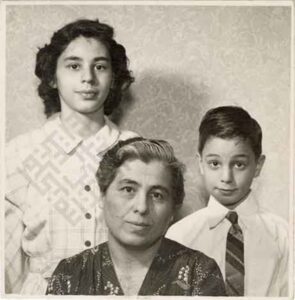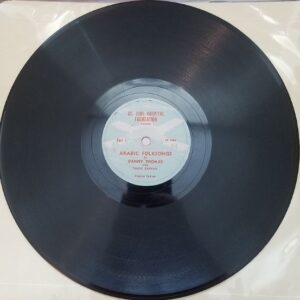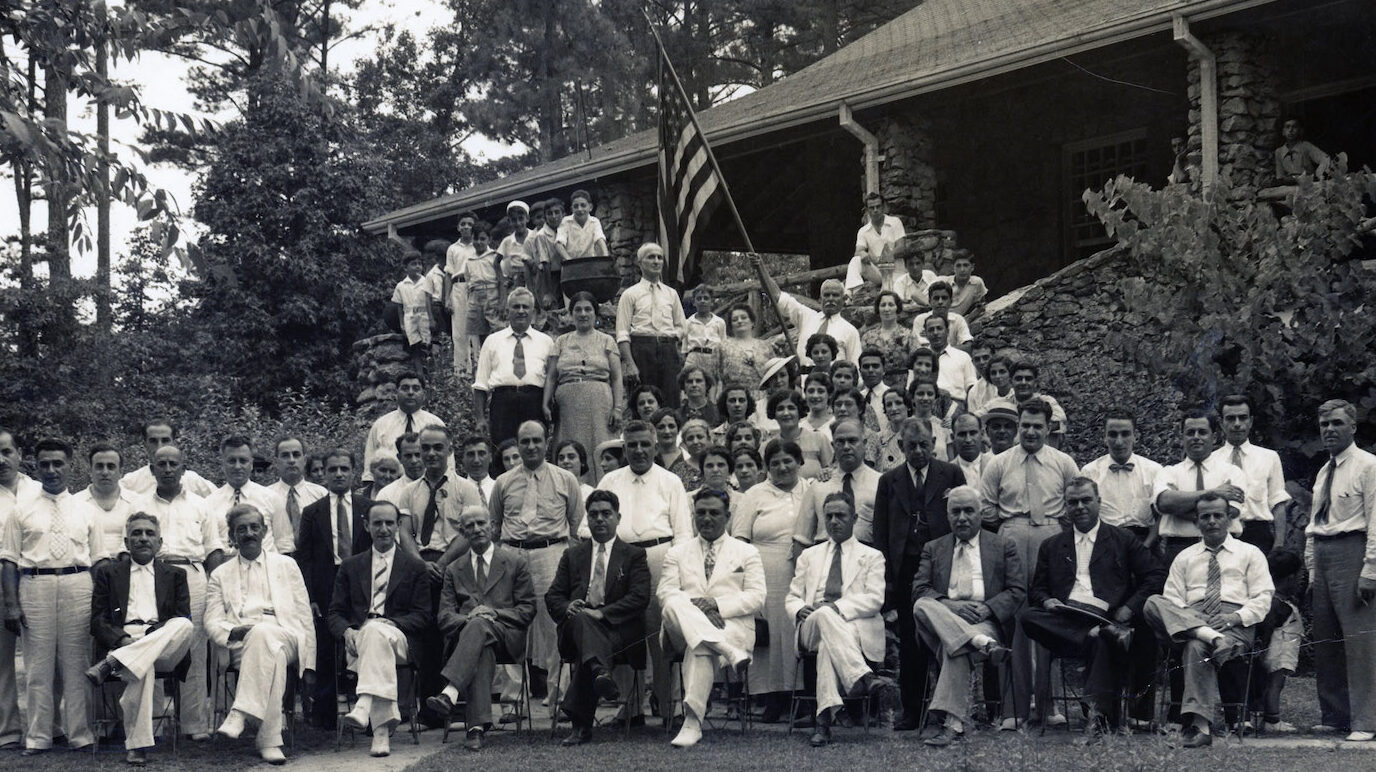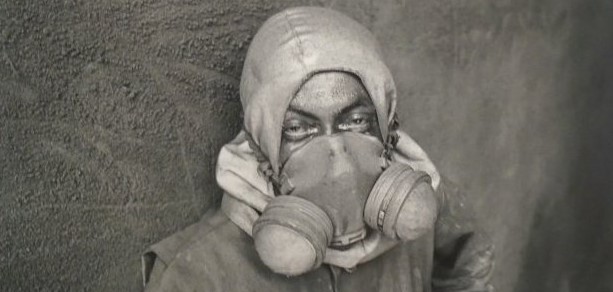My Mother’s 78 RPM Arabic Record Collection
In 2020 the Khayrallah Center Archive was gifted 32 vinyl records of Arabic music from Kail Ellis as an addition to the Angele Hobeiche Kmeid-Ellis Collection, which can be viewed here and over the course of the past year the records were digitized by Jason Evans Groth at the NCSU library and can now be listened to on our website here. This is Kail’s story.

My mother used to love to listen to Arabic music, especially when she was working in the kitchen. At first, her Arabic records were 78 RPMs and later on Arabic cassettes. As a ten or twelve year old, I recall that our family had a console radio that had a turntable on top that was located in the dining room next to the kitchen. I do not know for certain where my mother purchased her Arabic records, but I think it was through Malko Brothers in New York, which still exists as Malko Karkanni Brothers on Atlantic Avenue in Cobble Hill, Brooklyn [i].
In the late 1940s and early 1950s, a gentleman that my brothers and sisters knew only as “Malko,” made the rounds of Lebanese families who lived in northern New York state. Our town, Carthage, was twenty-five miles from the Canadian border. My older brother Rafic, recalls Malko. Malko was the owner of the establishment in New York City and the principal reason for his visits was to take orders from families of the Lebanese diaspora for food products such as bulgur (an edible cereal grain made from dried, cracked wheat), za’atara (a thyme spice mixture that includes toasted sesame seeds, dried sumac, and salt), mujaddara (lentils), rice, Arabic bread, and sweets, such as baklava (a layered pastry dessert made of filo pastry, filled with chopped nuts, and sweetened with syrup or honey), and ma’amoul (a butter cookie filled with dried fruits made with semolina flour). Once, however, my mother ordered a salted eel which my sister, Alfreda and I, had never before seen.

We were thrown off. It was huge—several feet it seemed, wrapped in newspaper and kept on the back porch to keep it cool. At first, we thought it was a giant snake. Although my mother must have cooked it, I have no recollection of ever having eaten it.
The Arabic records purchased by mother always began with an introduction: “Al Astuanet Alamphon: al mutribi “Toufic Shurki” or the name of another artist. Most of the singers appeared to be Egyptian, or so I thought, until I discovered what the Alamphon website called the 78 rpm club [ii].

It turns out that the headquarters for the record company was not far from that of the Malko Karkanni Brothers establishment on Atlantic Avenue in New York City. It stated:
Alamphon records were all pressed in Brooklyn, New York in the 1940s and 1950s. Their address was 182 Atlantic Avenue, Brooklyn NY (pre zip-code address). It was a label for the emerging local Arab-American population.
This surprised me, as I thought the records were imported. The website claimed that although “there were some issues of authentic Arabic singers, such recordings were clearly labeled as “imported recordings [iii].” The artists included Um Kulthum (d. 1975), Abdel Halim Hafez (d. 1977), Mohammad Abdel Wahab (d. 1991), and Farid al-Attash (d. 1974), among many other notable Arabic singers. Although it has been a few years since the Khayrallah Center accepted my mother’s collection of 78 RPMs, I recall that they also included a number of records by notable Lebanese singers such as Fairuz, Haifa Wehbe and Sabah (d. 2014).

Danny Thomas’s disk of Arabic folksongs, which he recorded with Toufic Barham as a benefit for St Jude’s Hospital, which he founded, is also in the collection.
Perhaps one of the lasting impressions of my mother’s Arabic record collection is related by my niece, Angele, my mother’s namesake. Angele stated that she has one memory of her grandmother, Sitti Angele playing Arabic records for her during a visit when she was a young adult. She recalls:
There was a song that began, Allo, allo, allo Bei-ru-u-ut… Sitti translated, explaining that the song was about a flirtatious conversation between a man and a woman as a result of a wrong phone number. The man asks at one point, Are you dark, are you fair, are you medium? Sitti amplified the Arabic: “Fair, like you–medium, like your sister Diana.”
Notes:
[i] “James and Karla Murray Photography, Wednesday, November 11, 2020,” James and Karla Murray Photography. http://jamesandkarlamurray.blogspot.com/2020/11/malko-karkanni-bros-cobble-hill-brooklyn.html
[ii] “78 RPM Club—Alamphon,” https://78rpm.club/record-labels/alamphon-2/
[iii] Ibid.
- Categories:


